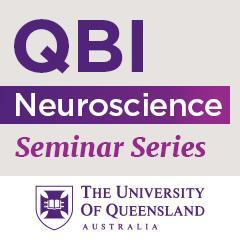Professor Lars Ittner, UNSW : "On the molecular role of Tau in regulating post-synaptic toxicity"
Speaker:
Professor Lars Ittner
School of Medical Sciences, University of New South Wales
Title: On the molecular role of Tau in regulating post-synaptic toxicity
Abstract: Alzheimer's disease presents with deposition of the microtubule-associated protein tau in neurofibrillary tangles, and amyloid-b (Ab) in extracellular plaques. Tau plays a role in neuronal dysfunction prior to its deposition, and we have previously shown that tau mediates Ab toxicity at the post-synapse. Here, we investigated the molecular pathways regulated by tau during onset and progression of neurodegeneration.
Using genomic and proteomic approaches together with different mouse models, we have identified specific differentially regulated and tau-dependent candidate pathways during neuronal toxicity. These were confirmed by using biochemical, histological and molecular methods together with a range of specific gene knockout mice. Functional impacts were determined by neurological and behavioral testing, and electroencephalography.
Here, we showed in detail how tau regulates Ab-mediated and NMDA receptor-dependent toxicity at the neuronal post-synapse, by orchestrating both toxicity-promoting and -limiting signaling pathways. Specifically, we found that tau regulates post-synaptic density complexes containing the endogenous inhibitor of Ras activation, SynGAP1, and therefore the activation of ERK signaling during neuronal toxicity. Furthermore, we showed that post-synaptic MAPK signaling in turn regulates the effects mediated by tau. We then used CRISPR-mediated point mutations to demonstrate the role of specific pathways in vivo. Furthermore, we generated new transgenic mice and adeno-associated virus-mediated gene expression to target these pathways, preventing memory deficits and aberrant neuronal network activity in mouse models of Alzheimer’s disease.
In summary, we revealed that tau is critically involved in mediating specific signaling pathways involved in Ab toxicity in Alzheimer’s disease, providing new targets for therapeutic intervention.
About Neuroscience Seminars
Neuroscience seminars at the QBI play a major role in the advancement of neuroscience in the Asia-Pacific region. The primary goal of these seminars is to promote excellence in neuroscience through the exchange of ideas, establishing new collaborations and augmenting partnerships already in place.
Seminars in the QBI Auditorium on Level 7 are held on Wednesdays at 12-1pm, which are sometimes simulcast on Zoom (with approval from the speaker). We also occassionally hold seminars from international speakers via Zoom. The days and times of these seminars will vary depending on the time zone of the speaker. Please see each seminar listed below for details.



